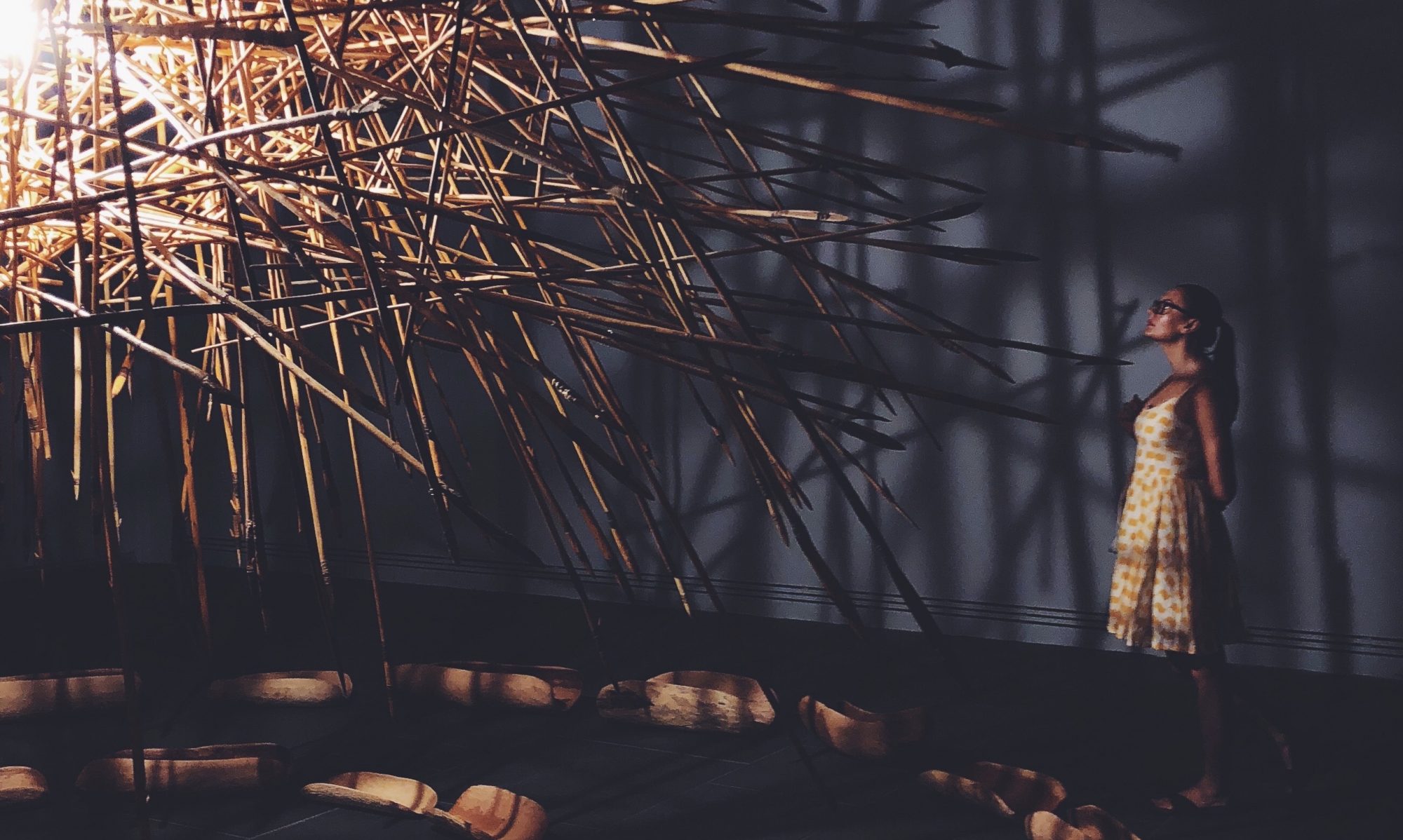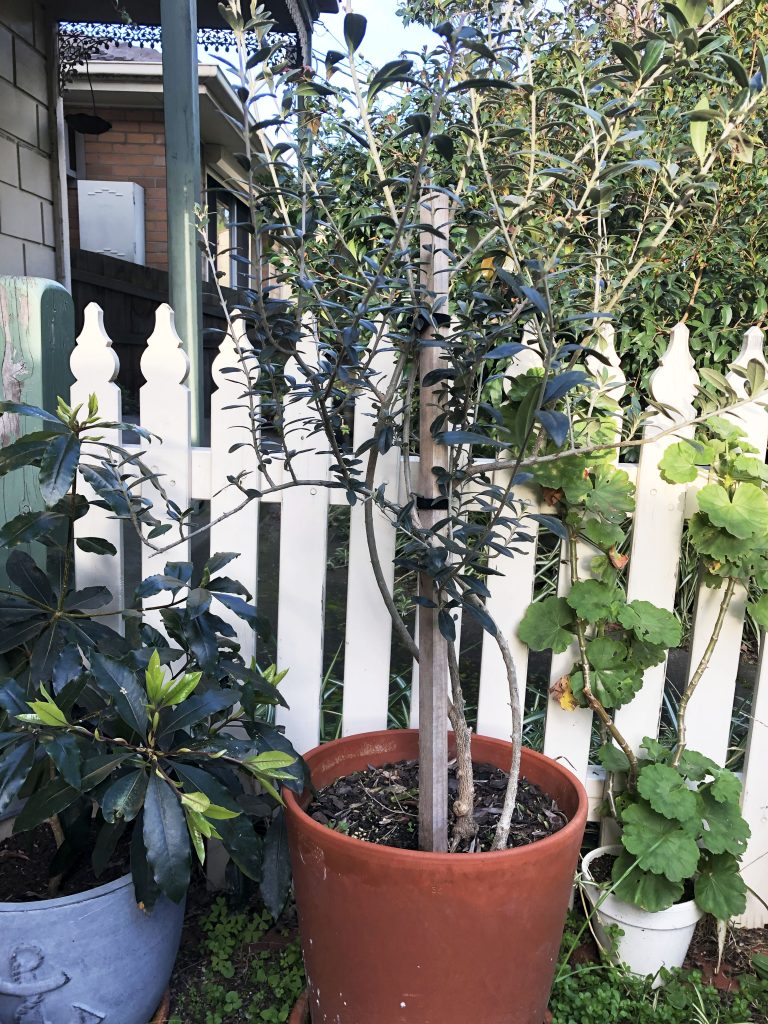
Many of you will be familiar with this olive tree and might even remember the day it was gifted to me by my former neighbour, nonno Domenico of “Brunswicka Westa” in Naarm, Melbourne. You will know how meaningful this gift was to me, not least because my fellow housemates and I had developed a special relationship with Domenico over the years. Undoubtedly, this relationship strengthened the night we had all been woken up by flashing red lights of an ambulance that sent Domenico’s wife Giuseppina away forever.
After that night, nonno Domenico lived across the road with his scruffy, almost-blind dog Bobby, he continued to grow all sorts of fruit and vegetables in his small suburban yard, and we exchanged our respective produce with one another. One year, he showed my brother Tony how to prepare the olives we had recently picked into the salty, pressed style of olives our father used to make, a prized instruction since we loved that style of olives, but we could not ask our father for instructions. At that time, Dad was still in our lives, but barely.
We made sure to wave at nonno Domenico every time we entered our gate, and to glance across the street to check his light was on every night. We advised him whenever we intended to be away, knowing he’d watch over our home in our absence. He would call us in for caffé, Averna, or Crown lagers any chance he could, no matter the time of day or night. Sometimes, we would sit with him on his plastic deck chairs in his backyard, sometimes around his kitchen table, but always sharing stories, snacks, and smiles. His English was better than our Italian, but we fumbled our way through in a mixture of both. Sometimes, he’d take us into the formal dining room, inevitably shedding tears in front of the framed picture of his beloved late wife, a small shrine dedicated to Giuseppina’s memory established at the end of the large wooden table.
Nonno Domenico was a special man and the olive tree was a special gift.
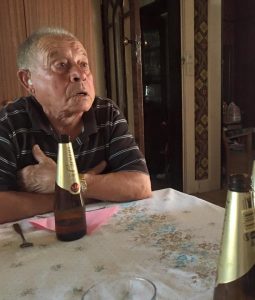
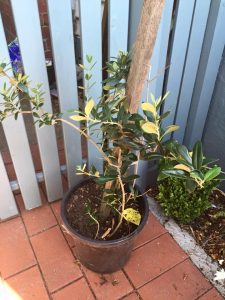
Many of you will know that the olive tree became a way for me to feel re-connected to my own nonno, also called Domenico, who passed away in 2001.
You will know that every day, right up until this current one, I think of my nonno whenever I look at this tree and tending to it feels like tending to something else, something bigger, something culturally and spiritually important to me and my migrant family. When I see new growth, I wish I could tell nonno about the progress, but it doesn’t matter too much that I can’t – what matters is the sense of knowing, of believing, that he would be proud if I could tell him.
You might recall my anxiety when I had to replant the tree into a larger pot soon after moving to Boonwurrung Country, Williamstown in 2017. I was frightened I would perform this weighty task wrongly, and ruin the tree’s roots, inevitably losing not only the connection with my own nonno, but with the nonno Domenico who gave me the tree. I guess I was afraid I would ruin different kinds of roots.
After all, since moving to Williamstown, neither of the two nonno Domenicos were present in my life. Once, I stopped in on Domenico of Brunswicka Westa, but mostly I only have this tree as a reminder of our relationship, mostly I can only hope his light is on every night.
Fewer of you will know that the tree is increasingly becoming a way for me to communicate with my estranged father, the man who taught me the beauty of olives – both the fruit and the trees they grow on.
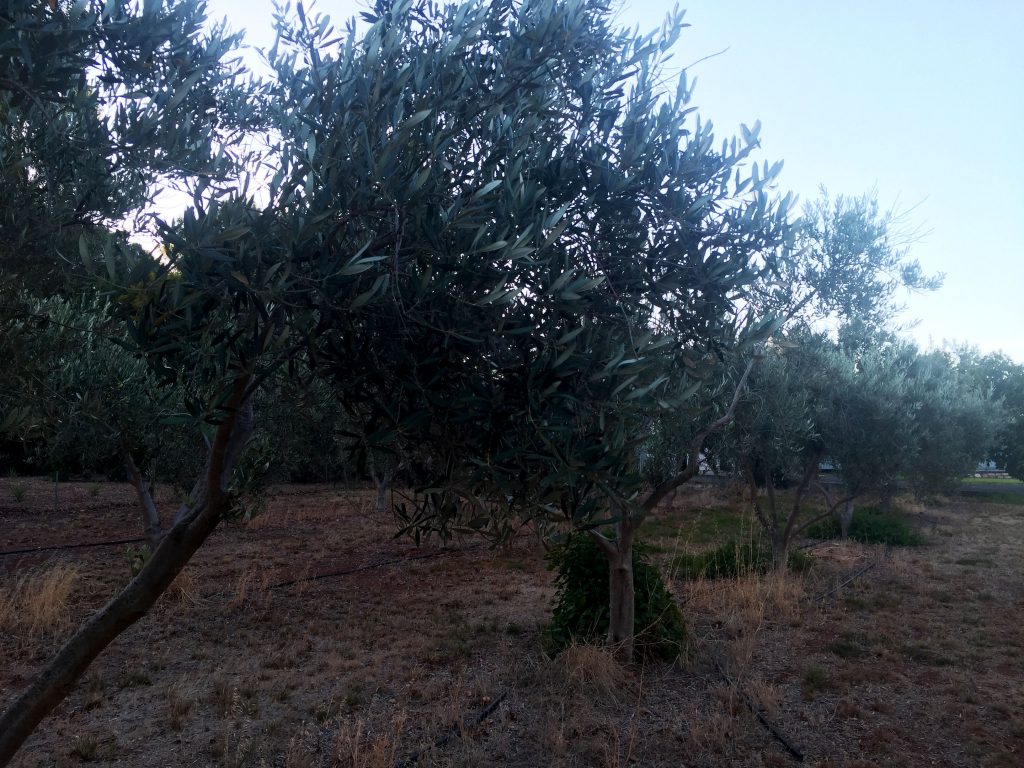
I used to walk through the small olive grove at my father’s property and feel serene, marvelling at how the trees had grown since the last time I’d visited, and finding something infinitely poetic about the coloured contrast between the yellowing wheat field in the distance and the blue-grey green of the olive tree leaves. Each time I visited, I would also spend some time with “Nonno’s Olive Tree”, the one we had planted at the bottom of the yard, after nonno’s death. We never really talked about how this tree had not grown as well as the others, mind you.
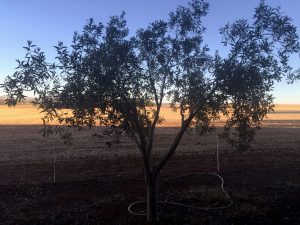
Those closest to me know how upset I have been in the last two years on the occasions when I have had to prune my olive tree, or when it developed a virus, or became infested with little bugs. I was upset not simply because of concern I would not provide the right care, but because I could not phone my father and ask him what the right care was in these instances. You might have even come to my aid at one of these times and offered your own horticultural advice and words of reassurance, reminding me that I did not need my father or his olive-tree wisdom. And you were right.
I use this tree to communicate with my father not in a literal sense, obviously, nor even as some kind of pseudo-telepathy. I communicate with my father through this tree because despite being severed from him, I am irrevocably tied to him, too – the terms of my living, the things that I do, will always be made and done in relation to him in some shape or form, in relation to the man who helped bring me into this world, who gave me my Calabrese name. Indeed, I can only oppose his decisions and choose an alternative life because I exist in relation to those decisions and that life in the first place.
As such, the tree helps me communicate my growing sense of ownership of the person I am becoming in the absence of my father: a Trimboli woman who is more than capable of growing her own olive tree, a whole grove if she wishes and as she intends to do one day. Somehow, the tree allows me to send that message without it being necessary for my father to ever receive it; the tree hears it and knows it and that is what is really important, that is how this mode of communication with my father works.
You might have had conversations with me about how I could ensure this little tree would remain in my life, about how I could ensure I would see it grow into a big tree. The future of the tree was a legitimate concern, for example, when I started considering a long-term plan to move back to South Australia, which has stringent anti-fruit-fly measures. When I voiced this worry to some of my Kaurna-/Adelaide-based family members, my zia Rosa assured me the tree could be put into quarantine at the border, and after a certain amount of time it would be released to me. Maybe she knew the next question I had but that I did not want to ask (“but what if it doesn’t pass quarantine?”), because she immediately said, without me speaking another word: “don’t worry, we will get that tree here.” I believed her and once again started considering a long-term plan to move back to South Australia.
I realise, of course, that some of you will not be aware of any of this information, will not have known about the tree I was gifted, let alone my complicated attachment to it. I nonetheless suspect that you will feel some level of empathy towards we both – my tree and me – all the same, when you read this.
What I do not know is how you will feel about another tree, a sacred birthing tree whose temporality is forever, whose roots, trunk, and branches have an age that cannot be separated from the age of the earth itself. A tree that has welcomed over fifty generations of babies into the world under the guidance and care of Djab Wurrung women Elders. A grand and powerful tree that is just one of many, and that without which fundamentally diminishes the meaning of my little olive tree, a tree that if demolished would immediately and without doubt scar the infantile trunk of my tree, which of course is not “my tree” at all, but rather a tree of another place, growing in soil that belongs to other peoples, on country that I occupy without permission.
My heart would surely feel broken for a time if this olive tree was to die, or if it was to be stolen (a real fear I entertained when realising the front yard was the best location for my tree in Williamstown!). I would spend significant time grieving the loss of this tree, and miss it always, even as I tended to and admired my other olive trees.
But what if my-tree-that-isn’t-really-my-tree, my tree that frankly might as well be an ordinary twig on a footpath in comparison to a Djab Wurrung tree was knowingly destroyed by another person and for no good reason? If my tree was destroyed by someone who knew the importance of the tree to me, by someone whom I had implored over and over not to destroy the tree, by someone who willingly destroyed it anyway?
In that case, it is not just that my heart would feel broken, or that my grief would rise and fade across time, but that something in my being – in the very way I move, love, think, share, and relate to other things in this world – would experience a type of break. How could it not, if the person I feel I am in the world has become tied up somehow with this little olive tree, and if another person flippantly yet ruthlessly destroyed it right before me? My sadness would be for the tree, but it would be for something beyond the tree and beyond me, to be sure.
If the Victorian Government demolishes the sacred Djab Wurrung trees despite all of the resistance and requests from Djab Wurrung people otherwise, and if we non-Indigenous Australians – illegitimate caretakers of other trees growing in soils that belong to other peoples, on country that we occupy without permission, and that yet we stake a claim on regardless – if we allow it to do so, something will break, something beyond hearts and beyond trees, and certainly something beyond our supposed humanity.
—
Postscript , 22 August 2019
I wrote this piece today because I had insomnia last night, and I couldn’t stop thinking about the Djab Wurrung people who would be sitting by their sacred trees, waiting for the police to come in the morning and attempt to evict them off their own Country (see this Conversation article for more information on the status of the issue at this moment). Before going to bed, I had seen a video taken earlier in the day at the Djab Wurrung Embassy site by Yorta Yorta man Neil Morris aka DRMNGNOW, featuring the trees under threat. I was reminded how magnificent the trees are, stupefied even, by their magnificence, and felt so heavy in the heart trying to imagine what Djab Wurrung people must be feeling right now. My mind went to my own beloved tree. I eventually slept and when I awoke later in the morning I wrote the above, though feel reluctant, even ashamed to post it now, because the structure of the writing feels so colonial: i.e. “because I can understand how I would feel if a tree I care about was deliberately destroyed I can therefore understand how Djab Wurrung people would feel.”
First, I could never understand how Djab Wurrung people would feel because I am not Djab Wurrung, nor a First Nations person: I am a migrant settler and I am implicated in the dispossession of these trees.
Second, my tree is nothing in comparison, nor should it even be compared: the tree that has a role in my life is special to me, but a Djab Wurrung tree is not just special to a person, it is intrinsic to an entire culture and ecosystem.
Third, I feel so frustrated when this kind of reasoning gets delivered as an attempt to ignite political empathy, e.g. when someone says, “imagine if it was your child who drowned at sea”, in an attempt to build a case for asylum seeker rights, or, “imagine if it was your daughter”, in an attempt to build a case against male violence against girls and women – as if one need have a relationship to something directly comparable in order to recognise when something is unjust and inhumane.
Nonetheless, I am posting this anecdote about my olive tree. I am posting it because it is difficult to make it to the Embassy site, and because I have emailed and phoned all the MPs several times over the past few months and know this is not enough. I also know anything I try to do or write will always have some shade of colonial logic to it, because I am an uninvited migrant living on Indigenous land, full stop. I am posting it because I think it is important to try and tell stories that open dialogue and prompt connections, even if those attempts fall short, or fail. Most of all, though, I am posting this anecdote because I truly hope with all of my heart that those magnificent, sacred trees will not be destroyed.
For more information and for suggestions on ways you can help, please visit the Djab Wurrung Heritage Protection Embassy website.
